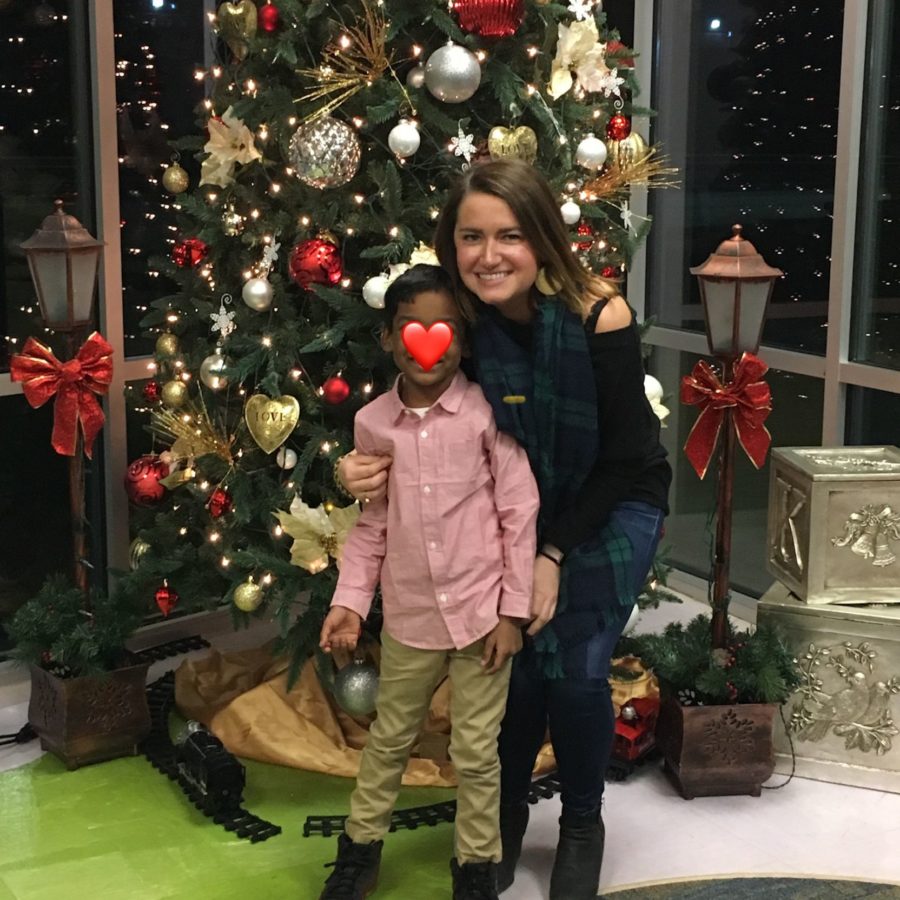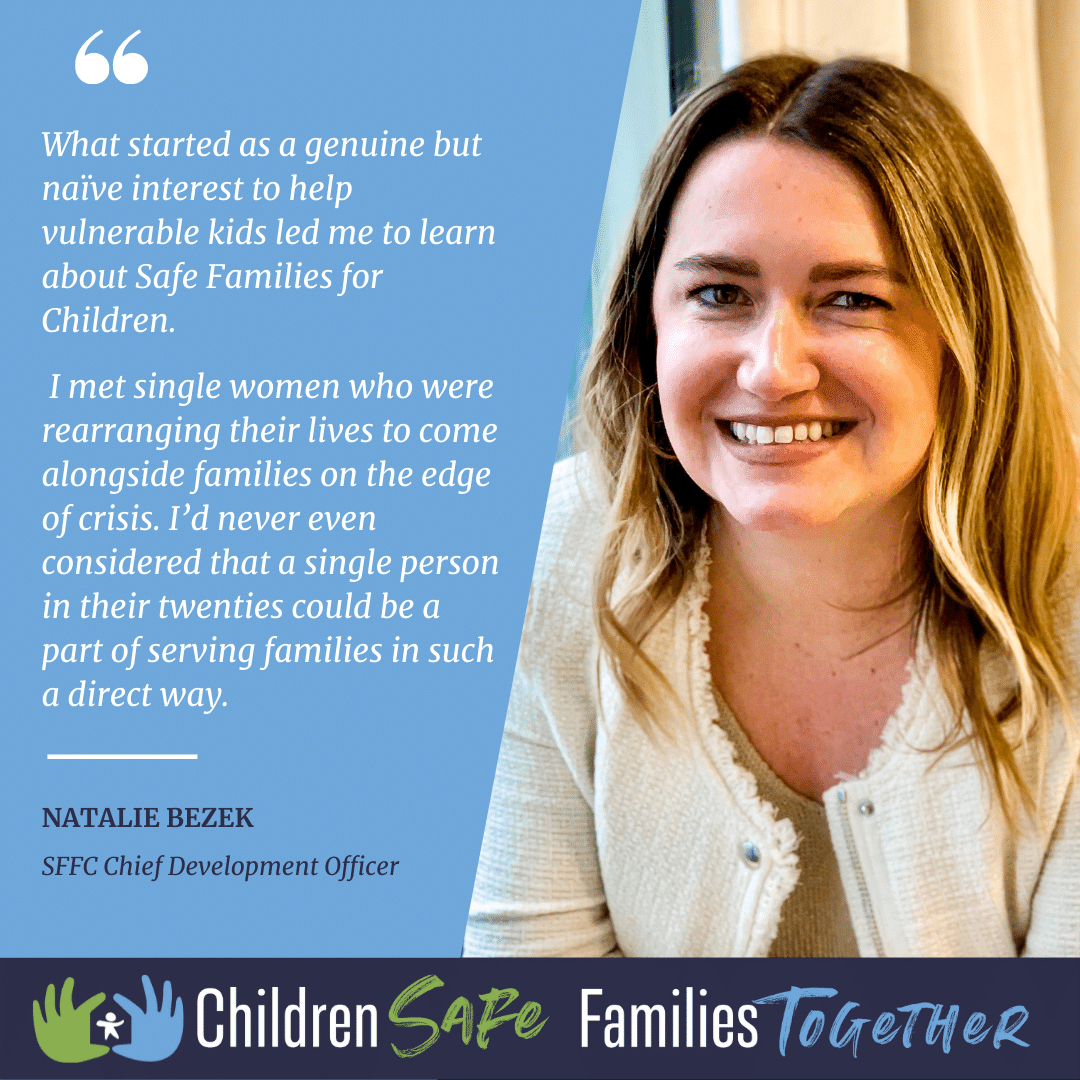By Natalie Bezek, SFFC Chief Development Officer
I reflected on this question often through my mid-twenties. As a single woman, I watched many friends get married and start families, and I often felt overlooked by God. The “good life” I imagined for myself and expected God to also want for me, was not panning out the way I expected.
During a season of frustration and wondering why it seemed God was providing for others and not for me, I listened to a sermon that changed the trajectory of my life. My pastor read the story of Joseph from the book of Genesis. By the world’s standards, Joseph’s life did not appear to be good. In fact, he experienced cruelty and unfairness from even his closest family. But the Bible describes Joseph as favored by God. Even as extraordinary betrayal and circumstance marked his days, he was favored by God.
My own life looked nothing like Joseph’s. If anything, my heart was more like his jealous brothers. I had been asking God to fulfill my own version of the Christian American dream, and that I’d measured God’s favor in my life against how I perceived him blessing others. The problem was the dream I imagined wasn’t coming true, nor had God promised it would.
And so I began to consider if I might have been measuring my life with the wrong standard of good.
What started as a genuine but naïve interest to help vulnerable kids led me to learn about Safe Families for Children. I met single women who were rearranging their lives to come alongside families on the edge of crisis. I’d never even considered that a single person in their twenties could be a part of serving families in such a direct way.
With the support of my friends and community, I took steps toward a different good. Over the next two and a half years, I committed to saying “yes” until God clearly said “no.” For me, that meant hosting kids and teens in my small city apartment. It meant learning more about trauma and patience and humility than I ever could have imagined.
And it meant seeing the body of Christ live as the hands and feet of Jesus. Friends from near and far stepped up to support me with school pickups, weekend respites, late-night calls, and regular meal deliveries. I drew closer to God as I struggled to say the right thing amidst families’ pain and hardship.
I’ve come to understand there isn’t a one-size-fits-all solution for families experiencing a crisis. Nor is there a one-size-fits-all life. No matter our season of life, we are all called to help those in need.
If you, too, wonder if there is another more satisfying way to live out your faith, I encourage you to consider how God might use you with Safe Families for Children. Here are a few questions to pray through:
- What does it mean for me to live a good life? How am I measuring a life well lived?
- Can I open my home today to a child or children who need a temporary, safe home? If not, why not?
- Who are the parents or caregivers in my community who could use support, childcare or friendship? If there are none that I know, how can I expand my personal circle?
- How can I become another safe and consistent person for a child?
- How much can I sacrifice and financially invest in a community organization that is meeting the physical needs of at-risk families?
I think if Christians believed in caring for vulnerable kids and families as each of our individual callings until we hear a “no” rather than waiting for divine confirmation of a “yes,” our communities and cities would be transformed.
Let’s choose to measure our lives by a different standard of good, and see God restore the world.


